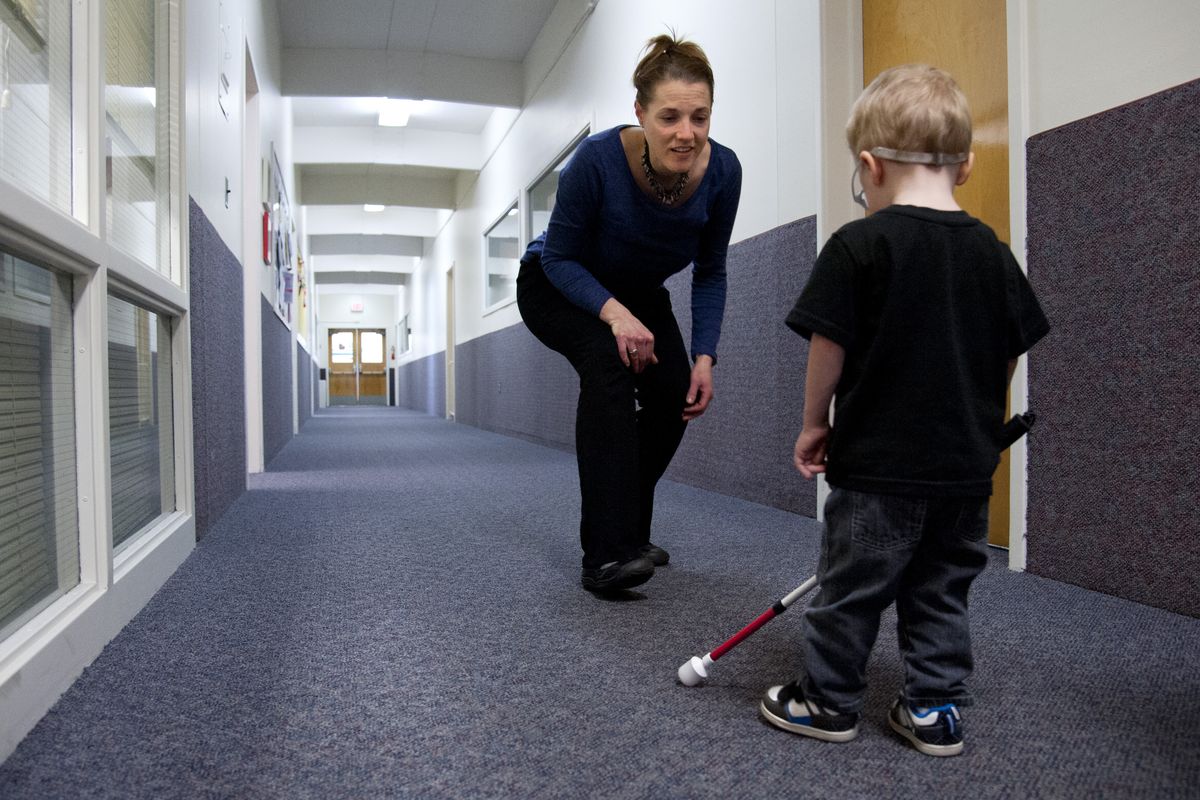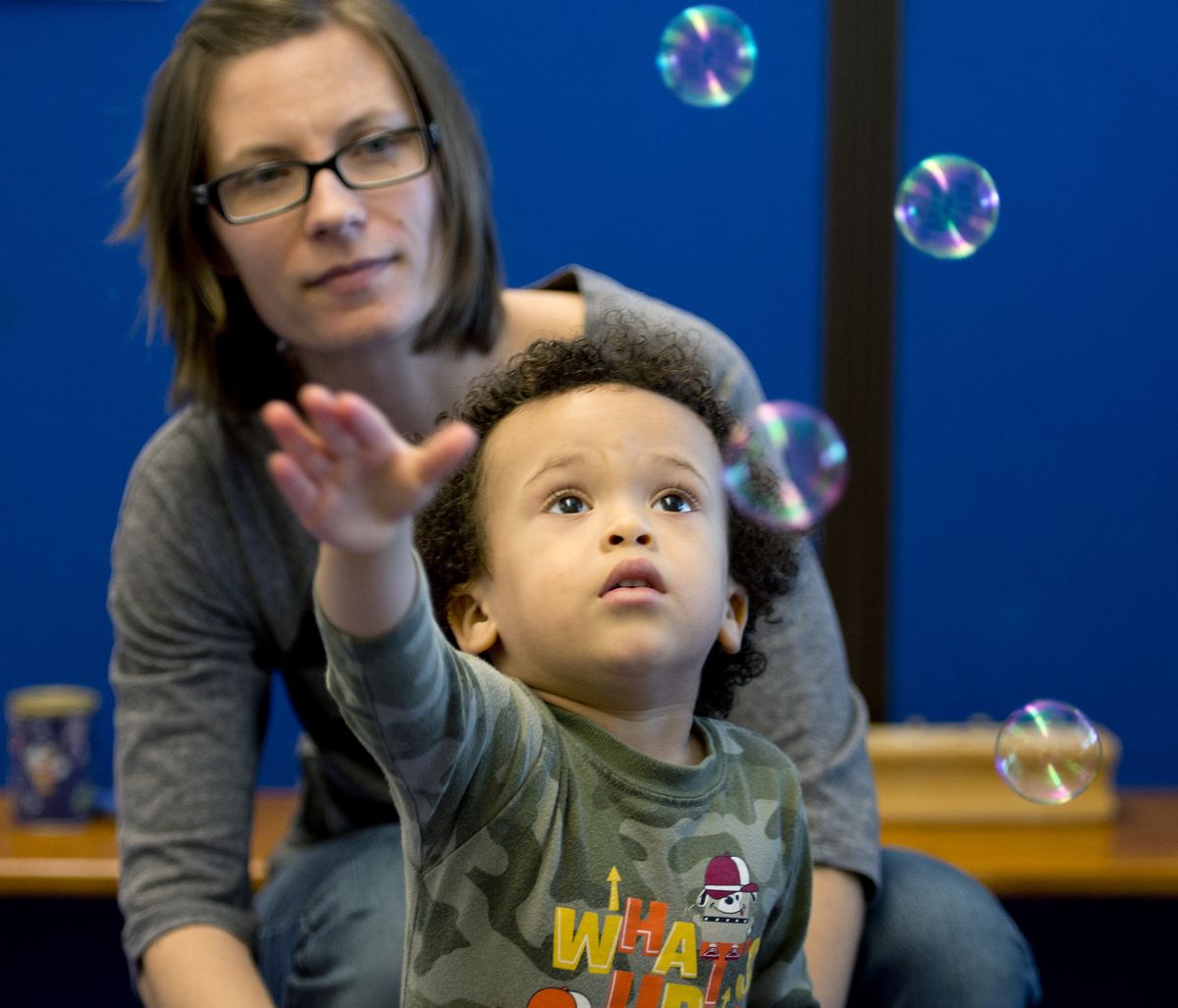Guilds’ School penny drive moving full-speed ahead
Spokane Guilds’ School occupational therapist Robin Van Hauten works with Russell Winkler, a visually challenged 2-year-old student, during an excursion down the hallway on Wednesday. (Dan Pelle)Buy a print of this photo
A local organization that helps young children with disabilities adapt to school life now has to adapt its own fundraising practices to comply with Spokane’s new panhandling laws.
The Spokane Guilds’ School Foundation is holding its 17th-annual penny drive on Saturday, its first since the Spokane City Council voted 6-1 in August to outlaw panhandling in the downtown corridor.
Development Director Ken Daniel said the nonprofit was able to work with council members to develop a plan allowing fundraising to continue outside of the downtown area, in places that are safer than near highway exits and entrances.
“We’re appreciative they didn’t say flat-out no to us,” Daniel said.
The organization won’t know until this weekend whether the compromise will be enough to keep the coins flowing.
Daniel said the yearlong penny drive nets up to $170,000, but Saturday’s annual Community Day brings in $65,000 to $75,000 of that total. Two years ago, the school had 18 collection sites. After ordinances limiting panhandling in Spokane and Spokane Valley, fundraisers are down to 13 sites. The nonprofit’s overall budget is about $3.1 million per year, a third of which is raised from the community.
In addition to funding, concerns include less visibility for the organization.
“It’s important we don’t lose the essence of what we do, and the primary thing we do is try to build awareness of special needs of children,” Daniel said.
The foundation provides therapeutic care for children up to age 3 who have mental and physical disabilities including autism, Down syndrome, hearing loss, blindness and other medical issues. The program integrates physical, occupational and speech therapy depending on the needs of each child.
About 200 students in Spokane County are part of the program each year, most from families living below the poverty line. Insurance pays for anywhere from a half-dozen to 60 visits to the center, but the organization does not turn away anyone who can’t pay. Daniel said 20 percent of Guilds’ School students no longer need therapy after the early intervention, and the rest make significant strides toward goals like walking, speaking or being able to attend mainstream schools.
In a class of six toddlers with varying disabilities Wednesday, the teachers and aides were able to focus on different skills with the children in each activity. Even rewards, like a child getting a stamp on his or her hand, are an exercise for that child in having to ask for a stamp. During group sing-alongs – which work on hand coordination in clapping, articulation of words and social skills – the staff were focusing on the children’s posture, muscle use and coordination.
Daniel said the organization began as a place for parents to bring their children as a respite from the constant stress of caring for a child with special needs.
A child “comes into the world, you think it’s going to be a perfect little guy or little girl,” Daniel said. “You find out that there’s an issue and it’s heartbreaking. Where do you turn? You try to find those resources, and we’re one of those resources that give you everything.”

